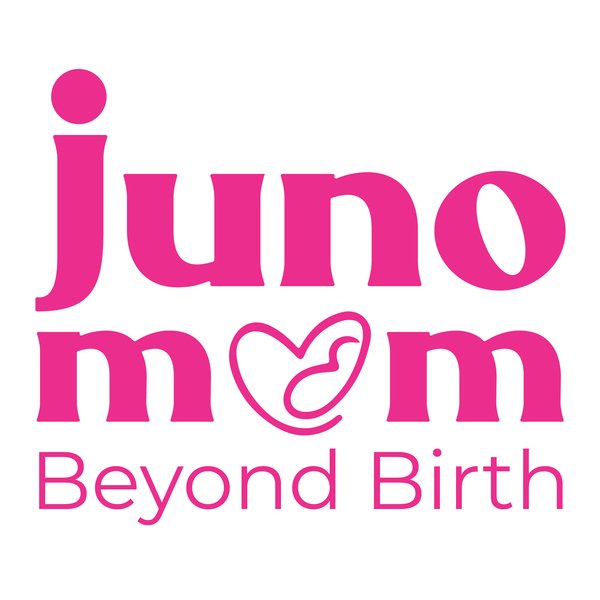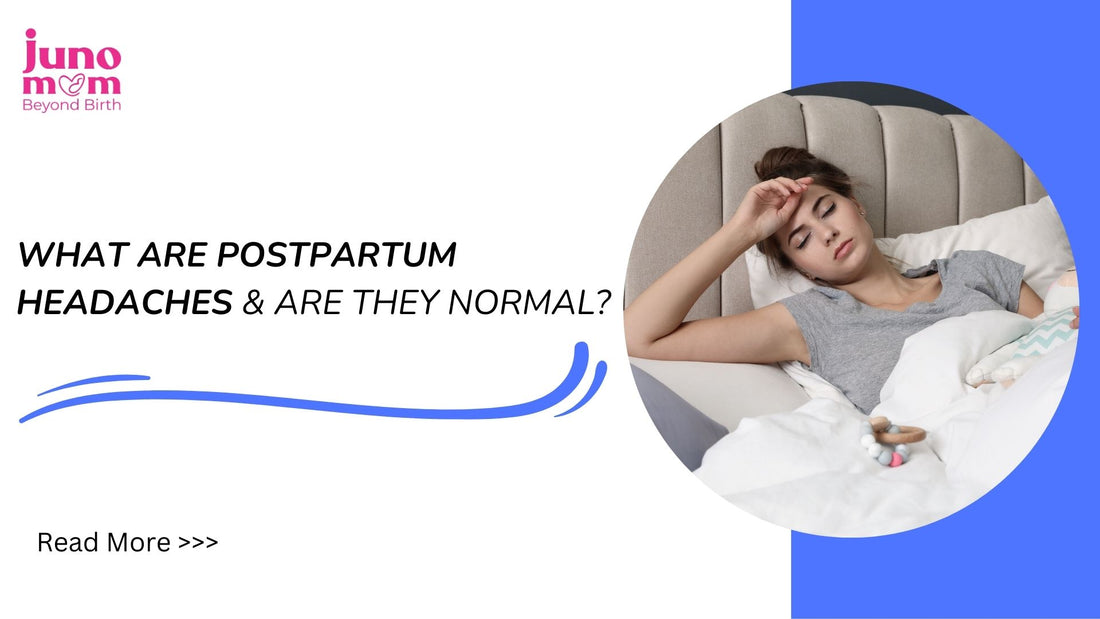The postpartum period can bring unexpected challenges. Among these, postpartum headaches can be particularly troubling for new moms. In this blog, we'll explore what postpartum headaches are, why they occur, and most importantly, if they are normal. By the end, you'll have a clearer understanding of this common issue and how to manage it effectively.

Understanding Postpartum Headaches
What Are Postpartum Headaches?
Postpartum headaches are headaches that occur within the first six weeks after childbirth. They can vary in intensity, from mild discomfort to severe, throbbing pain. These headaches are not uncommon and can be triggered by several factors related to the physical and emotional changes that occur after giving birth.

Why Do Postpartum Headaches Occur?
There are various reasons why new mothers may experience headaches postpartum:
-
Hormonal Fluctuations:
After childbirth, the body undergoes significant hormonal changes. The sudden drop in estrogen levels can trigger headaches, particularly in women who are sensitive to hormonal shifts. -
Stress and Fatigue:
The early weeks of motherhood are often exhausting. Sleep deprivation, anxiety, and the stress of adjusting to a new routine can contribute to tension headaches.
-
Dehydration:
New moms, especially those who are breastfeeding, need to stay hydrated. Dehydration can lead to headaches, making it crucial to drink plenty of fluids.
-
Caffeine Withdrawal:
Many women reduce their caffeine intake during pregnancy. After childbirth, if caffeine consumption increases, it can lead to withdrawal headaches. -
Preeclampsia and Other Medical Conditions:
In some cases, headaches may be a sign of a more serious condition, such as preeclampsia, which can occur even after delivery. If a headache is accompanied by high blood pressure, visual disturbances, or severe pain, seeking medical attention is essential.
Are Postpartum Headaches Normal?

Yes, Postpartum Headaches Are Normal
For most new mothers, postpartum headaches are a normal part of the recovery process. They are typically related to the body's adjustment after childbirth and are usually not a cause for concern. However, it’s important to listen to your body and take note of any unusual or severe symptoms.
When to Seek Medical Advice
While most postpartum headaches are harmless, certain symptoms should not be ignored. Consult your healthcare provider if you experience:

- Sudden, Severe Headaches: If a headache comes on suddenly and is intensely painful, it could be a sign of a more serious condition.
- Headaches with High Blood Pressure: This could be a symptom of postpartum preeclampsia, which requires immediate medical attention.
- Headaches Accompanied by Neurological Symptoms: These include blurred vision, numbness, or difficulty speaking, which may indicate a stroke or other neurological issue.
Managing Postpartum Headaches
Self-Care Tips to Alleviate Headaches
While it’s essential to address any underlying medical conditions, l self-care strategies can help manage postpartum headaches:
-
Stay Hydrated:
Drink plenty of water throughout the day to prevent dehydration, which is a common cause of headaches. -
Prioritize Rest:
Sleep when your baby sleeps, and don’t hesitate to ask for help from your partner, family, or friends.
-
Maintain a Balanced Diet:
Eating regular, nutritious meals can help stabilize your blood sugar levels, reducing the likelihood of headaches.
-
Practice Relaxation Techniques:
Techniques such as deep breathing, meditation, or gentle yoga can help reduce stress and tension. -
Monitor Caffeine Intake:
Be mindful of your caffeine consumption, as sudden increases or decreases can trigger headaches.
Medication and Treatment
For persistent or severe headaches, your healthcare provider may recommend over-the-counter pain relievers, such as acetaminophen or ibuprofen. However, always consult with your doctor before taking any medication, especially if you are breastfeeding.
Navigating Postpartum Headaches with Confidence
Postpartum headaches are a common issue that many new moms face. While they can be uncomfortable and even alarming, they are usually a normal part of the postpartum recovery process. By understanding the causes and knowing when to seek medical advice, you can manage these headaches effectively and focus on what truly matters—caring for yourself and your new baby.

Remember, it’s always best to consult with your healthcare provider if you're ever in doubt about your symptoms. Your health and well-being are just as important as your baby’s.
Worried about your Postpartum Recovery? Consult With A Specialist On Juno Mom Today!
Visit Juno Mom for all Postpartum Essentials.


